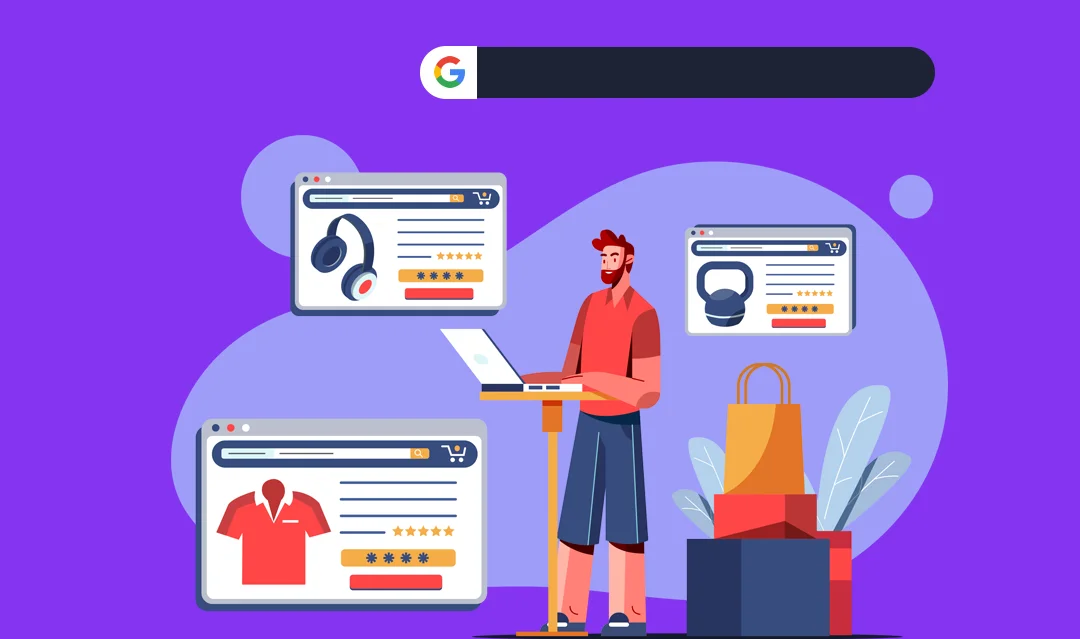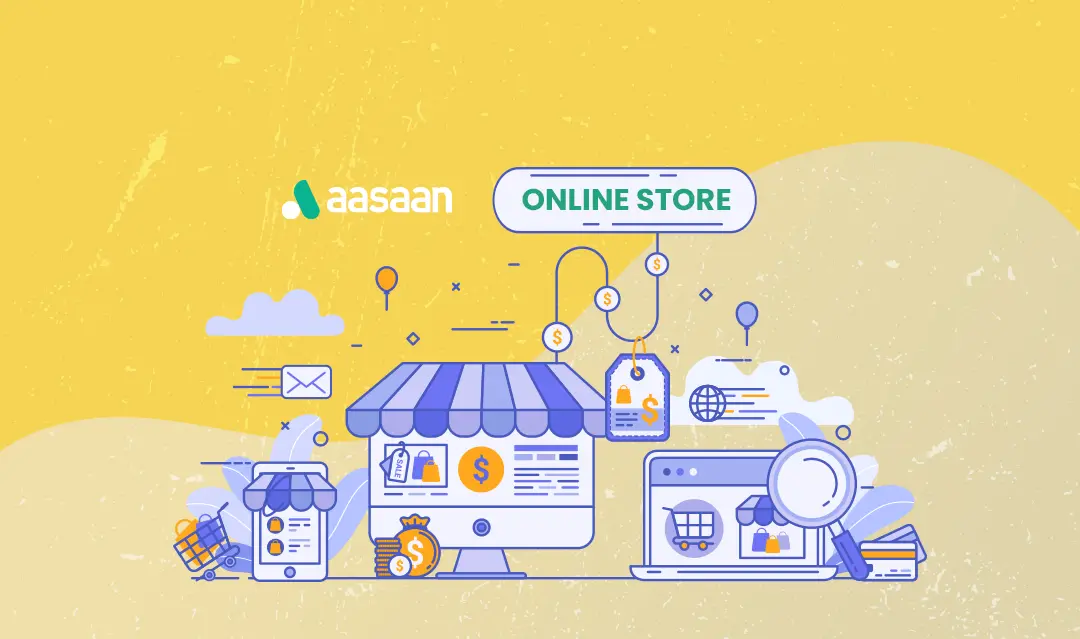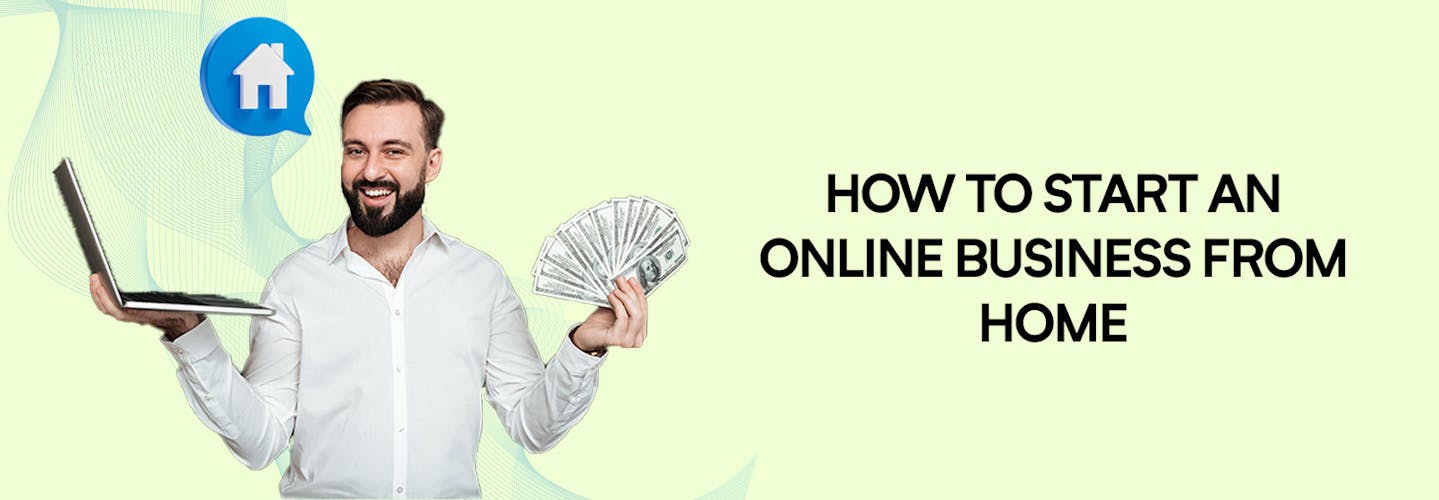
The Ultimate Guide to Launching Your Online Business from Home [2024]
Hello there, aspiring entrepreneur!
Are you dreaming of starting your own online business? Well, you’re in the right place.
In this guide, we’ll walk you through the steps to turn that dream into a reality.
The internet has revolutionized the way we do business.
With just a laptop and an internet connection, you can build an empire from the comfort of your home.
How cool is that?
The Rise of Online Businesses
Did you know that as of 2023, there were over 4.18 billion active internet users worldwide?
That’s more than half the global population! With such a vast audience at your fingertips, it’s no wonder that online businesses are booming.
The convenience of shopping online, coupled with the ongoing global pandemic, has led to a surge in e-commerce.
According to Oberlo, global e-commerce sales are expected to grow 8.9% in 2023, reaching $5.9 trillion worldwide.
By 2026, this figure is forecast to increase to $8.14 trillion, with e-commerce accounting for 23.3% of total retail sales.
E-commerce is definitely a growing and lucrative industry! ð° That’s a lot of zeros!
The Benefits of Starting an Online Business from Home
But wait, there’s more! Starting an online business from home isn’t just trendy; it’s also incredibly rewarding. Here are a few perks:
- Low Startup Costs: You don’t need a physical storefront, which cuts down on expenses.
- Flexibility: Work in your pajamas if you want to! You set your own hours.
- Global Reach: Your customers can be from anywhere in the world.
- Passive Income: With the right strategy, you can earn money while you sleep.
Sounds tempting, doesn’t it? But before you dive in, you need a solid plan.
Related: Benefits & Limitations of Doing online business
1. Identifying Your Online Business Idea
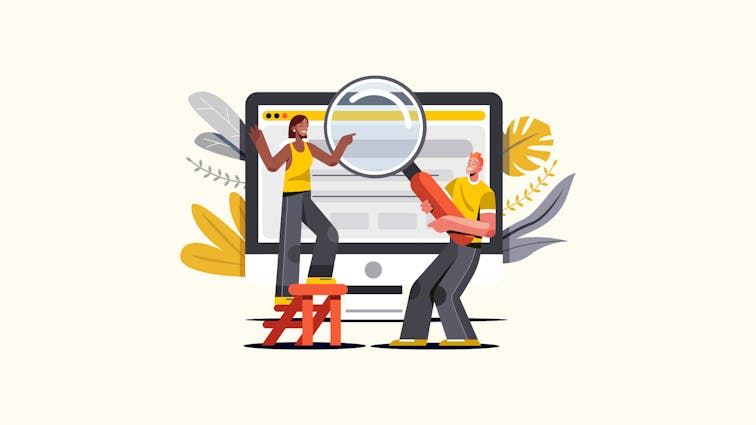
A. Finding a Niche
The first step in starting your online business is finding your niche. This is the specific area or industry that your business will focus on.
It’s crucial to choose a niche that you’re passionate about and where you can offer something unique to your potential customers.
For example, let’s say you’re passionate about sustainable living. Your niche could be selling eco-friendly home products.
This is a growing market, with more and more consumers becoming conscious of their environmental impact.
According to a report by Nielsen, 73% of global consumers say they would definitely or probably change their consumption habits to reduce their impact on the environment.
B. Conducting Market Research
Once you’ve identified your niche, it’s time to conduct market research. This involves gathering information about your potential customers and competitors.
You need to understand who your customers are, what they want, and how you can meet their needs better than your competitors.
For instance, if your niche is eco-friendly home products, you might use tools like Google Trends or SEMrush to find out what specific products people are searching for.
You could also look at your competitors’ websites to see what products they’re selling and how they’re marketing them.
C. Validating Your Business Idea
The final step is validating your business idea. This means making sure there’s a market for your product or service.
One way to do this is by creating a minimum viable product (MVP) and seeing if it generates any interest.
For example, you could create a simple website selling a few of your eco-friendly home products and promote it on social media. If you get a good response, this could be a sign that there’s a market for your business.
You could also conduct surveys or ask for feedback on social media. This can give you valuable insights into what your potential customers want and whether they’re interested in your product or service.
Remember, starting an online business is a journey, and these steps are just the beginning. But with a clear idea, thorough market research, and a validated business idea, you’re well on your way to building a successful online business from home.
According to Statista, retail e-commerce sales amounted to approximately 5.2 trillion U.S. dollars worldwide in 2021, and this figure is forecast to grow by 56 percent over the next years, reaching about 8.1 trillion dollars by 2026. This shows the immense potential of starting an online business.
2. Planning Your Online Business
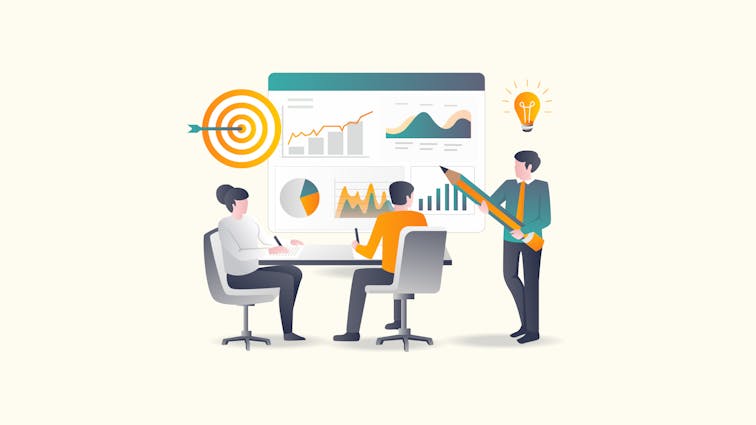
A. Creating a Business Plan
Just like a blueprint is essential for building a house, a business plan is crucial for starting a business. It’s your roadmap, outlining your business goals and how you plan to achieve them.
Your business plan should include:
- Executive Summary: This is a brief overview of your business, including your business name, what you sell, and why you believe it will be successful.
- Company Description: Here, you’ll detail what your business does and how it meets the needs of your market.
- Market Analysis: This section should include the results of your market research, including information about your industry, target market, and competitors.
- Organization and Management: Describe your business structure (e.g., sole proprietorship, LLC) and your team.
- Service or Product Line: What are you selling? Detail your products or services and the benefits they offer to customers.
- Marketing and Sales Strategy: How will you attract and retain customers? Outline your marketing and sales plan.
- Financial Projections: Provide an outlook of your business’s financial future. This might include sales and income projections.
Remember, your business plan isn’t set in stone. It’s a living document that should evolve as your business grows and changes.
B. Understanding Your Target Market
Your target market is the specific group of people you want to reach with your products or services.
They’re the people who are most likely to buy from you. Understanding your target market is crucial because it helps you tailor your marketing efforts to the people who are most likely to become your customers.
To understand your target market, you need to consider factors like age, location, gender, income level, education level, occupation, and interests.
For example, if you’re selling eco-friendly home products, your target market might be environmentally conscious consumers in their 20s and 30s.
C. Setting Up Your Business Model
Your business model is how your business makes money. It’s how you create, deliver, and capture value.
There are many different types of business models, but here are a few common ones for online businesses:
- E-commerce: This involves selling physical or digital products on your website.
- Subscription: Customers pay a recurring fee to access your product or service.
- Freemium: You offer a basic version of your product or service for free, and customers can pay for premium features.
- Affiliate Marketing: You promote other companies’ products on your website and earn a commission for each sale made through your referral link.
Choosing the right business model depends on your business idea, your goals, and your target market.
It’s important to choose a model that fits your business and has the potential to generate a sustainable income.
3. Setting Up Your Online Business
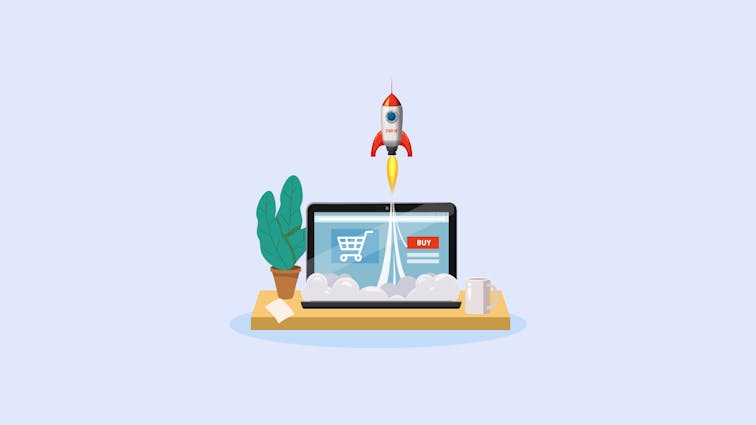
A. Registering Your Business
The first official step in setting up your online business is registering it. This process may vary depending on your location, but generally, it involves choosing a business name and registering it with the appropriate government agency.
You’ll also need to choose a business structure (such as a sole proprietorship, partnership, LLC, or corporation).
Each structure has different legal and tax implications, so it’s worth consulting with a business advisor or attorney to understand which is best for you.
B. Applying for Licenses and Permits
Depending on the nature of your online business, you may need certain licenses or permits to operate legally.
These could range from a general business license to more specific permits related to your products or services.
For example, if you’re selling food products, you might need a health permit. Be sure to research the specific requirements for your business and location.
C. Choosing Your Accounting System
Proper financial management is crucial for the success of your business. You’ll need to set up an accounting system to manage your income, expenses, and taxes.
You can choose to do this manually, but there are also many accounting software options available that can automate much of the process. Some popular options include QuickBooks, Xero, and FreshBooks.
D. Setting Up Your Business Location (Website)
Since you’re starting an online business, your website will be your “storefront.” It’s where customers will learn about your business, browse your products or services, and make purchases.
There are several platforms you can use to build your website, such as WordPress, Shopify, or Aasaan.
These platforms offer templates and tools that make it easy to create a professional-looking website, even if you don’t have any coding experience.
When setting up your website, consider the following:
- User Experience: Your website should be easy to navigate, with clear menus and a search function.
- Mobile-Friendly: More and more people are shopping on their phones. Make sure your website looks good and works well on mobile devices.
- SEO: Use SEO (Search Engine Optimization) practices to improve your website’s visibility on search engines like Google.
- Security: If you’re selling products or services on your website, you’ll need to ensure it’s secure for transactions. This usually involves having an SSL certificate.
4. Building Your Online Presence

A. Building Your Website
Your website is your online storefront, and it’s often the first impression potential customers have of your business.
It should be visually appealing, easy to navigate, and reflect your brand’s identity.
You can build your website using platforms like WordPress, Aasaan, Shopify, or Wix, which offer a variety of templates and customization options.
B. SEO for Your Online Business
Search Engine Optimization (SEO) is a crucial part of building your online presence. It involves optimizing your website so it ranks higher in search engine results, making it easier for potential customers to find you.
This includes using relevant keywords in your content, optimizing your website’s speed and mobile-friendliness, and creating high-quality, valuable content that engages your audience.
C. Setting Up a Merchant Processor
A merchant processor, or payment processor, is a service that handles credit and debit card transactions for your business.
This is how you’ll accept payments from customers. There are many options to choose from, including PayPal, Stripe, and Square.
When choosing a processor, consider factors like transaction fees, customer service, and the types of payment they accept.
5. Running Your Online Business

A. Getting Your Team Ready
Even if you’re a solopreneur, you’ll likely need to work with others as your business grows.
This could include freelancers, contractors, or employees. Make sure everyone understands their roles and responsibilities, and set up systems for communication and collaboration.
B. Managing Your Online Business
Running an online business involves many tasks, including managing inventory, fulfilling orders, providing customer service, and marketing your products or services.
It’s important to stay organized and efficient. Consider using project management tools like Asana or Trello to keep track of tasks and deadlines.
C. Ad Management for Your Online Business
Advertising can be a powerful way to reach more customers and grow your online business.
You might use pay-per-click (PPC) advertising on search engines, social media ads, or even influencer marketing.
Whichever methods you choose, it’s important to monitor your ad’s performance and adjust your strategy as needed to get the best return on your investment.
6. Growing Your Online Business

A. Starting Marketing and Promotion
Marketing and promotion are key to growing your online business. This could involve social media marketing, email marketing, content marketing, and more.
The goal is to reach your target audience, engage them with valuable content, and encourage them to buy your products or services.
B. Using Webinars for Business Growth
Webinars can be a powerful tool for business growth. They allow you to share your expertise, build relationships with your audience, and promote your products or services.
You could host webinars on topics related to your business, or invite guest speakers to provide additional value.
C. Exploring Affiliate Marketing and Influencer Marketing
Affiliate marketing involves partnering with other businesses or influencers who promote your products and earn a commission on any sales they generate.
Influencer marketing is similar, but involves partnering with influencers who have a large following on social media or other platforms.
Both strategies can be effective ways to reach a larger audience and boost your sales. Just be sure to choose partners who align with your brand and can genuinely connect with your target audience.
7. Diversifying Your Online Business

A. Exploring Dropshipping
Dropshipping is a business model where you sell products online, but a third-party supplier stores, packs, and ships the products on your behalf.
This can be a cost-effective way to expand your product range without having to manage inventory.
B. Starting a Box Subscription Business
A box subscription business involves sending customers a box of products on a regular basis (usually monthly).
The products could be anything from beauty products to gourmet snacks. This can be a great way to generate recurring revenue and build customer loyalty.
C. Setting Up a Chatbot Business
Chatbots are AI-powered tools that can interact with customers via messaging platforms.
They can answer questions, provide recommendations, and even process orders. Setting up a chatbot for your online business can improve your customer service and increase your efficiency.
Are You Ready To Start An Online Business?
Starting an online business from home may not always be without challenges.
However, it is one of the most worthwhile things you will ever do.
So, if you have a great business idea and a passion for building something on your own, you must get started today.
By choosing an intuitive platform like aasaan.app, you can create your online store within minutes and get on the road to online business success.
Conclusion
The world of online business is full of potential. With the right idea, a solid plan, and a lot of determination, you can create a successful business from the comfort of your own home.
Whether you’re selling products, offering services, or sharing your expertise, there’s an audience out there waiting for you.
So, are you ready to take the leap and start your own online business? Remember, every big business starts with a small step.
It’s time to take yours. Let’s make your online business dream a reality!
FAQ’s:
1. What are some good online businesses to start from home?
There are numerous online businesses you can start from home. These include blogging, affiliate marketing, dropshipping, online tutoring, or selling handmade products or digital products like ebooks and courses. The best business for you depends on your skills and interests.
2. How much does it cost to start an online business?
The cost to start an online business can vary widely, depending on the type of business. Some businesses, like freelance writing or blogging, can be started with minimal costs. Others, like an online store, may require a significant investment in inventory and website development. On average, you can expect to spend $200 to $3000 to start an online business.
3. How can I start a small online business?
Starting a small online business involves identifying a business idea, conducting market research, creating a business plan, setting up your business legally, creating a website, and starting to market and sell your products or services. It’s important to take each step seriously and not rush the process.
4. What is the most profitable online business?
The profitability of an online business can vary greatly, but some of the most profitable online businesses include selling digital products, affiliate marketing, dropshipping, and offering online courses or coaching. These businesses have low overhead costs and high earning potential.
5. How can I start my own online business with no money?
Starting an online business with no money can be challenging, but it’s not impossible. You could start a service-based business, like freelance writing or graphic design, using skills you already have. Or, you could start a blog or YouTube channel, and make money through affiliate marketing and advertising.



